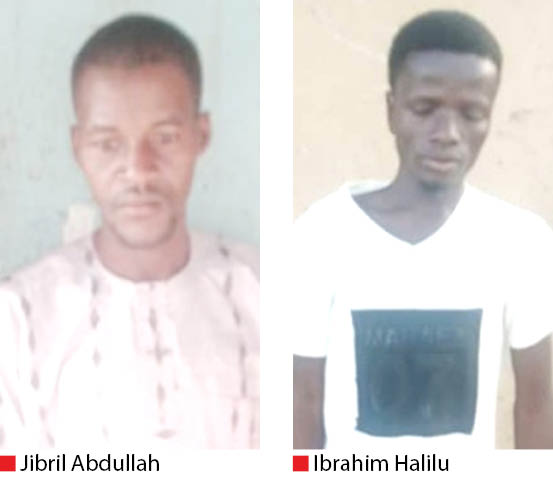Surviving 62 days in bandits’ camp: Kaduna victims speak
Following their new found freedom, victims of the Kaduna attack share their survival story in the hands of bandits. Jibril Abdallah and Ibrahim Halilu were among the 30 villagers abducted at Unguwar Liman, Gwada community of Igabi Local Government Area on December 10, 2023. They narrated their horrific experience in the deep forest where they […]

kaduna victims
Following their new found freedom, victims of the Kaduna attack share their survival story in the hands of bandits.
Jibril Abdallah and Ibrahim Halilu were among the 30 villagers abducted at Unguwar Liman, Gwada community of Igabi Local Government Area on December 10, 2023. They narrated their horrific experience in the deep forest where they were kept in captivity for 62 days.
The duo, among other abducted villagers, regained their freedom last week Saturday after being kept under difficult conditions inside the forest.
Jibril Abdullah described the condition they were kept in as terrible, saying, “We were fed once a day while being chained to a tree without moving an inch. We were tortured and threatened with death everyday as the teenage guards pointed guns at us. It was terrible because even water was not given to us to drink regularly.
- Taxation: IPMAN threatens to shut filling stations in Anambra
- Usman Lanase: They thought he was Hausa not knowing he had Yoruba roots
Asked about the total number of captives at the camp he said, “We were 38 men in number. Females were about 50. We were all brought from different villages.”
On whether the women were sexually abused, he said, “Not at all; they (bandits’ leaders) warned their people that whoever sexually abused any female victim would be killed. They said whoever felt like doing or having sex should visit local brothels outside the forest.
“They said the women were only brought to the bush to collect ransom from their family members and not to sexually abuse them. Apart from that, we all went through the suffering together.
“We were all fed meager meals once a day, and you needed to be hasty, if not the food would finish. Among us were also children.”
Jibril said that most times, the bandits would go to abduct people from their homes or on highways, adding that it was really terrible situation.
Another released victim, Ibrahim Haliru, corroborated the terrible condition they went through at the camp, including hunger and the denial of the right to pray five times a day.
“They (bandits) used padlock to chain us so as to prevent us from escaping. You could not wash your face or hands while eating. You were only allowed to have meager meals; that is if you would even get. Only few of them prayed daily. Majority of them don’t pray at all.
“They kept us under a very big tree inside a deep forest and chained us to the tree. We understand that most of the bandits were strangers to the area, only few amongst them were home-based,” he said.
He explained that the home-based bandits only visited the camps but hardly slept there. And only young men between the ages of 17 and 26 were assigned to guard them throughout the night.
He said the most senior among the bandits was about 50 years old and known as Baba Mai Roka. There is another leader called Sarki and another called Nayarma.
He said that after their release, they left about 50 other captives behind at the camp, both women and men.
“Among the women still at the camp there was one that was very sick but no medical attention was given to her. Nobody cares about your health, not even for the women.
“Some of the women were nursing mothers because there was one of them that gave birth 50 days ago before she was abducted without the baby,” he said.
He said the woman’s baby was left at home and the bandits never cared about her condition.
Asked if security agencies had conducted operations near the camp they were kept, he said, “Each time they (bandits) heard or sensed that the military were in the bush, they would remove the chains on us and push us into holes near the river until the military left the forest.”
He said the bandits were well armed. “They are armed and use walkie-talkie to communicate, especially when they heard that the military were in the bush,” he said.
He said that judging from the accent, most of the bandits were from Zamfara State.
He said they (bandits) claimed they were only invited to carry out operation in the area, saying most of them didn’t even know the names of the communities they attacked.
Asked if their abductors were bandits or insurgents he said, “They were bandits, not insurgents, but well armed. There are lots of camps in the forest. Our camp is located in the middle of other camps deep in inside the forest, which was why most of the military operations wasn’t done near us. We used to hear the bandits discuss that the military were in the forest.”
One of the community leaders in the Malam Jafaru Anaba area added that the victims suffered greatly during their stay in the forest.
He said most of them were admitted to a hospital before they recovered.
He said, “They looked terrible when they returned, but we thank God that at least they are back to their families. May we never witness such terrible experience again.”
